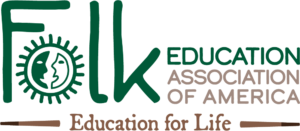The folk school ideology started in Denmark in the mid-1800s by philosopher, educator, and social critic Nikolai Frederik Severin Grundtvig. His concern was that schools should bring dignity to rural people and to the life of the farmer, most of Denmark’s population at the time, and wanted to instill pride in national culture and a lifelong love of learning. Traditional education was often not an option for his fellow countrymen, and Grundtvig believed it created a rift between life and learning.
These individuals, often uneducated and poor, had neither the time nor the money to enroll in a university, and the aim of the folk school was to help people qualify as active and engaged members of society without the need for traditional education. Grundtvig worked tirelessly to convince the Danish people that the establishment of a folk school would be critical to the country’s future and would allow its population to “build the foundation of skills and enlightenment necessary for creating a peaceable and just society.” Because of this, the folk school ideology is also credited with supporting Denmark’s successful transition to democracy from a monarchy.
Though Grundtvig developed the folk school philosophy, he did not actually establish any schools. His philosophy was put into practice by Christen Kold who founded the first successful folk high schools.
 When the very first folk high school opened in Rodding, Southern Denmark in 1844, exams were prohibited. The mutual respect between teaching staff and students who all live together in a community transcends social classes and is an important aspect of the folk school. Students who studied at the folk high school sang, read, and explored their surroundings, enjoying their time together while also learning core Danish values such as language, history, and constitution, among others. It was thought that examinations would take away from the community the folk school wanted to keep intact.
When the very first folk high school opened in Rodding, Southern Denmark in 1844, exams were prohibited. The mutual respect between teaching staff and students who all live together in a community transcends social classes and is an important aspect of the folk school. Students who studied at the folk high school sang, read, and explored their surroundings, enjoying their time together while also learning core Danish values such as language, history, and constitution, among others. It was thought that examinations would take away from the community the folk school wanted to keep intact.
By 1870, there were about 50 folk schools founded in Denmark that followed Grundtvig’s inspiration and ideology.
By the early 1900s, the Danish folk school model attracted many political progressives in the United States. These individuals intended to bring together political, economic, and educational experiences, and the Highlander Folk School in New Market, Tennessee was one of the first, and most well-known institutions to be established under this ideology. Now renamed as the Highlander Education and Research Center, its founder Myles Horton wanted a place where the people of Appalachia could learn and become empowered in their own communities as well as become successful leaders for seeking justice and democracy. Notable alumni who attended Highlander are Rosa Parks, Ralph Abernathy, and Martin Luther King, Jr.
To learn more about the history of folk schools and folk education including its presence in the United States and other folk schools around the country, please visit the Folk School Alliance.
Sources:
“A Brief History of Folk Schools.” Folk School Alliance. https://folkschoolalliance.org/a-brief-history-of-folk-schools#:~:text=The%20folk%20schools%20were%20part,(Scandinavian%20Seminar%2C%202004).
“A Brief History of the folk high school.” Danish Folk High Schools. https://danishfolkhighschools.com/about-folk-high-schools/history
